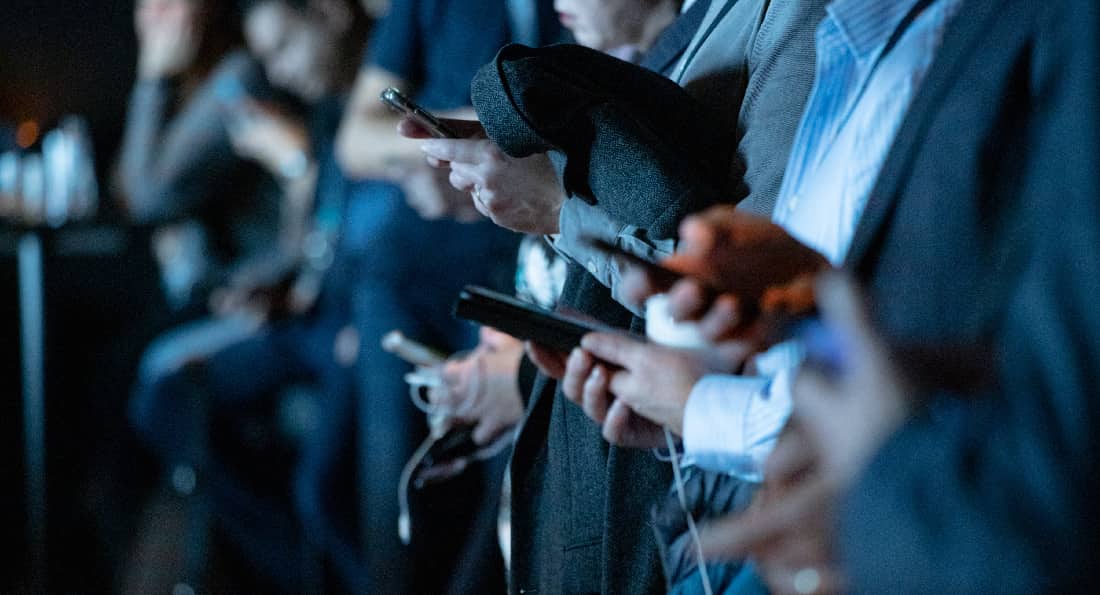What Is FOMO?
“Fear of missing out” is a term that became popular in 2004 when Facebook was launched. Facebook was a large online space designed for college students; it introduced people to the public display of friendships and everything they did through photos and status updates.
Relatively speaking, it’s a new dilemma, not one of life and death, but a quiet unrest in the souls of the connected generation.
Think of it this way. You’re scrolling through your feed, watching the lives of others laid out in pixels. There’s Jake, scaling a mountain—victorious selfie. There’s Sarah, laughing with friends at some suave café. Photos, stories, the highlight reels of other people’s lives flashing before your eyes, one swipe at a time.
Meanwhile, you’re on your couch, looking at the wall or playing more video games. The rest of the world is at a perpetual party. And it strikes you: the unease, the unsettling thought, “Shouldn’t I be out there, doing that, being there?”
That’s FOMO, a low-simmering anxiety brewed by the digital age. It’s not the grand drama of epics or tragedies but the subtle discordance of our times.
A niggling sense that while you’re here, life is happening beyond your reach in the posts and stories of your ever-connected world. It’s the understated battle between contentment with your life and restlessness for what could be—what you could be missing out on.
Contact Story Wellness
Where Does FOMO Come From?
Psychologists started using FOMO in the 2000s to depict a phenomenon linked to social media platforms. It has even gained more attention over time with increased social media presence. FOMO involves the perception of missing out. It triggers anxiety, and various compulsive behaviors, such as checking and refreshing your social sites to maintain connections. It’s closely associated with ostracism or fear of social exclusion.
Causes & Triggers of FOMO
The natural desire for belonging and social connection can cause FOMO. Humans intrinsically need interpersonal relationships and always wish to belong to something greater. The root cause of FOMO comes from a mixed psychological cocktail: comparing ourselves to others (or social pressure), fear of regret, desire to compete or achieve, low self-esteem, or increased dependence on social media for a sense of validation.
Real Examples of FOMO Triggers
Travel Posts:
An acquaintance shares photos from a stunning destination like the landscapes of Iceland.
Caption: Feeling on top of the world, literally! #IcelandAdventures #TravelJunkie”.
The FOMO here might arise from seeing someone else exploring unique cultures, enjoying breathtaking views, or simply breaking away from the routine, causing you to wish you could have similar experiences.
Fitness Posts:
A friend shares a photo or video of themselves after an intense workout.
Caption: “Nothing like a good sweat to start the day #FitLife #MorningWorkout.”
The FOMO might originate from seeing others care for their physical health and well-being, leading you to reflect on your fitness journey.
Relationship Posts: A post from someone you know showing off a picture-perfect date or a romantic getaway.
Caption: Romantic sunset picnic with my one and only #LoveWins #CoupleGoals
The FOMO can be driven by seeing someone else’s seemingly perfect romantic or familial relationships, making you evaluate your personal relationships and social connections.
Family and Relationships:
Posts about romantic dates, family reunions, or friends hanging out.
Caption: Family BBQ! I love these moments. #familytime #blessed
The FOMO might come from seeing others’ happy relationships or close-knit family moments, leading you to reflect on your connections.
Remember, FOMO tends to arise from a skewed comparison of your everyday life with the highlight reels of others’ lives on social media. It’s always crucial to remind ourselves what is shared on social media is a curated and idealized version of reality.
FOMO and Mental Health
Research shows that FOMO can harm a person’s mental health. Constantly checking and refreshing your social media channels for fear of missing out may amplify anxiety levels, enhance emotional tension, and reduce the ability to control emotions.
Receiving specific types of notifications may create a rewarding feeling in your brain. You may expect this positive feeling whenever you receive a new message. Suppose the rewarding feeling doesn’t come? In that case, this might lead to frustration, anxiety, and emotional distress for some people.
When Should You Get Help for FOMO?
Everyone has FOMO at a particular point. And although younger people might be more prone, anyone can feel out. The fear of missing out might even affect your physical and mental wellness.
In some instances, FOMO, or Fear of Missing Out, might be a symptom of underlying mental health conditions. It’s important to note that FOMO isn’t a diagnosable mental health disorder but a common experience in today’s digital age. However, when it’s chronic or severe, it could be indicative of other mental health issues:
- Anxiety Disorders: Persistent feelings of FOMO can sometimes indicate an underlying anxiety disorder. People with high anxiety levels may constantly worry about missing out on experiences, leading to distress.
- Depression: FOMO might be a symptom of depression in some instances. Constantly feeling left out or inadequate based on others’ experiences can exacerbate feelings of sadness and low self-esteem.
- Social Anxiety: FOMO can be particularly prevalent in people with social anxiety. The fear of missing out might be driven by worry about social exclusion or not fitting in.
- Obsessive-Compulsive Disorder (OCD): Some people with OCD may experience FOMO intensely, as they might obsess over the possibility of missing out on something and feel compelled to check social media or other information sources constantly.
- Body Dysmorphic Disorder: In the context of fitness or appearance-related FOMO, there may be an underlying issue of body dysmorphic disorder, where individuals obsess over perceived flaws in their appearance.
- Low Self-esteem or Insecurity: Chronic feelings of FOMO can sometimes be associated with low self-esteem or insecurity issues. Individuals might believe others lead happier or more fulfilling lives, which can undermine their self-worth.
Getting Help for Mental Health Issues
Living with the constant anxiety and unease of FOMO can be challenging, but you’re not alone. At Story Wellness, we’re dedicated to helping individuals navigate their mental health struggles in a safe, understanding, and compassionate environment.
Our expert team, based in Orange County, CA, offers a wide range of outpatient mental health services. We can assist you in exploring the roots of your FOMO and other mental health challenges and develop effective coping strategies tailored to your needs.
Remember, it’s okay to ask for help. Call us today at 866-476-2823 to talk with our team or to schedule a consultation. It’s time to step away from the fear and into your empowering story.






